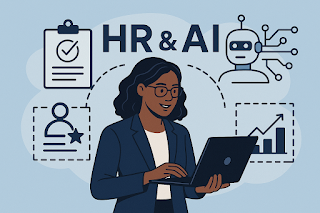Reward Management in the Age of AI
Reward management is a crucial part of human resources (HR) that is responsible for managing compensation, benefits, and recognition programs for employees. The process of managing rewards has traditionally been a manual and time-consuming task, with HR professionals spending significant time and effort to ensure employees are rewarded fairly and consistently.
However, with the rise of artificial intelligence (AI), reward management has become more efficient and effective. AI has the potential to revolutionize reward management by providing insights that enable HR professionals to make data-driven decisions, streamline processes, and personalize rewards for employees.
One of the key benefits of AI in reward management is its ability to analyze large amounts of data quickly and accurately. With AI, HR professionals can analyze employee data such as performance and engagement to determine which employees should receive rewards and what types of rewards are most appropriate. AI can also help identify patterns and trends in reward distribution, allowing HR professionals to address any biases or inconsistencies.
AI can also help automate reward management processes, such as salary benchmarking and calculating bonuses. This automation saves time and reduces the risk of errors, ensuring that employees are rewarded promptly and accurately.
Another advantage of AI in reward management is its ability to personalize rewards for individual employees. By analyzing data on employee preferences, AI can suggest rewards that are most likely to motivate and engage each employee. This personalized approach to rewards can help improve employee satisfaction and retention.
One potential concern with using AI in reward management is the risk of bias. AI algorithms can be trained on biased data, leading to discriminatory outcomes. To mitigate this risk, it is important to ensure that the data used to train AI models is diverse and representative of the entire employee population. Additionally, HR professionals should carefully monitor AI-generated recommendations and intervene if necessary to prevent biased outcomes.
In conclusion, AI has the potential to transform reward management in HR by providing data-driven insights, automating processes, and personalizing rewards for employees. However, it is important to carefully consider the potential risks of bias and take steps to mitigate them. With proper use and management, AI can improve the efficiency and effectiveness of reward management, ultimately contributing to a more engaged and satisfied workforce.



Comments
Post a Comment